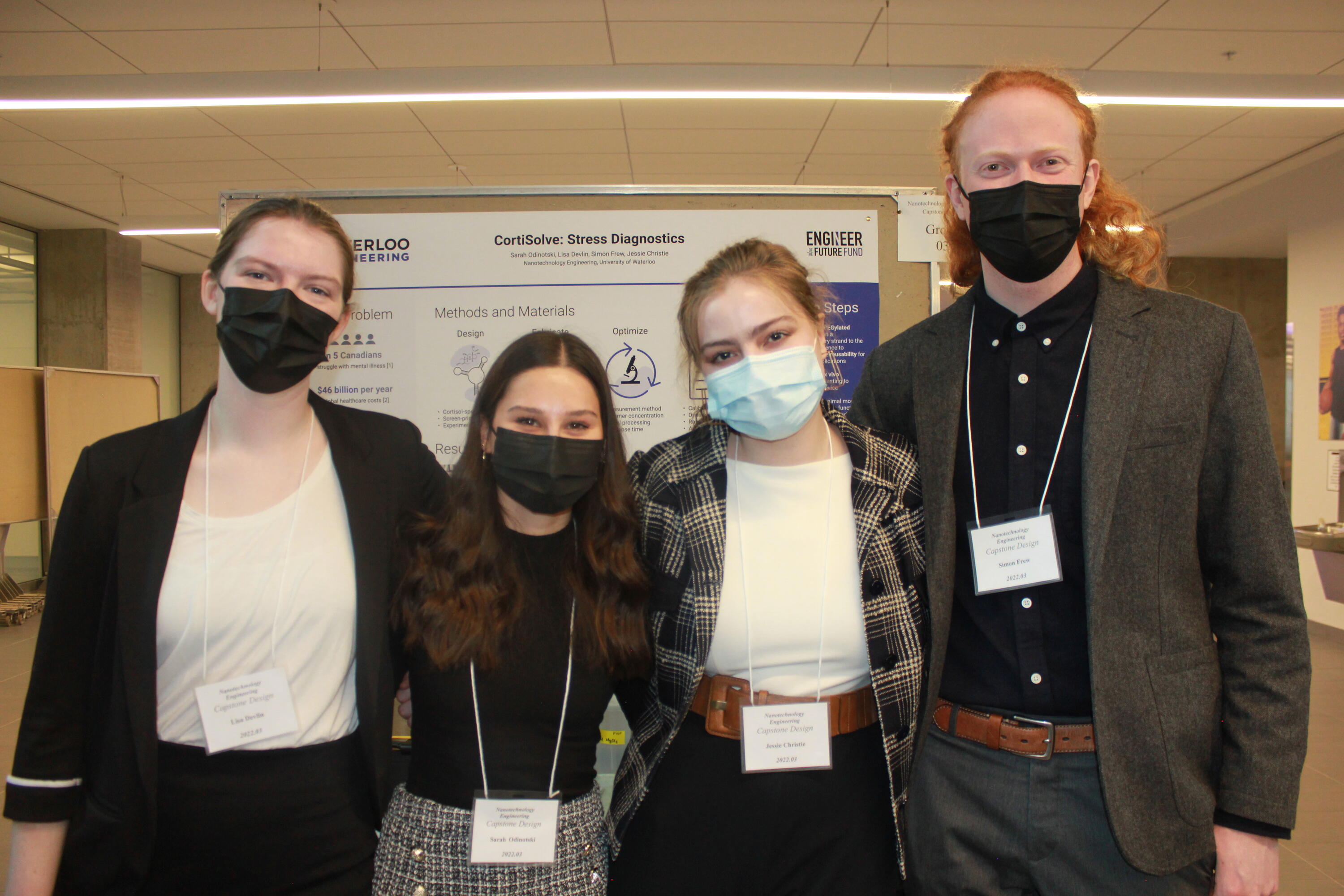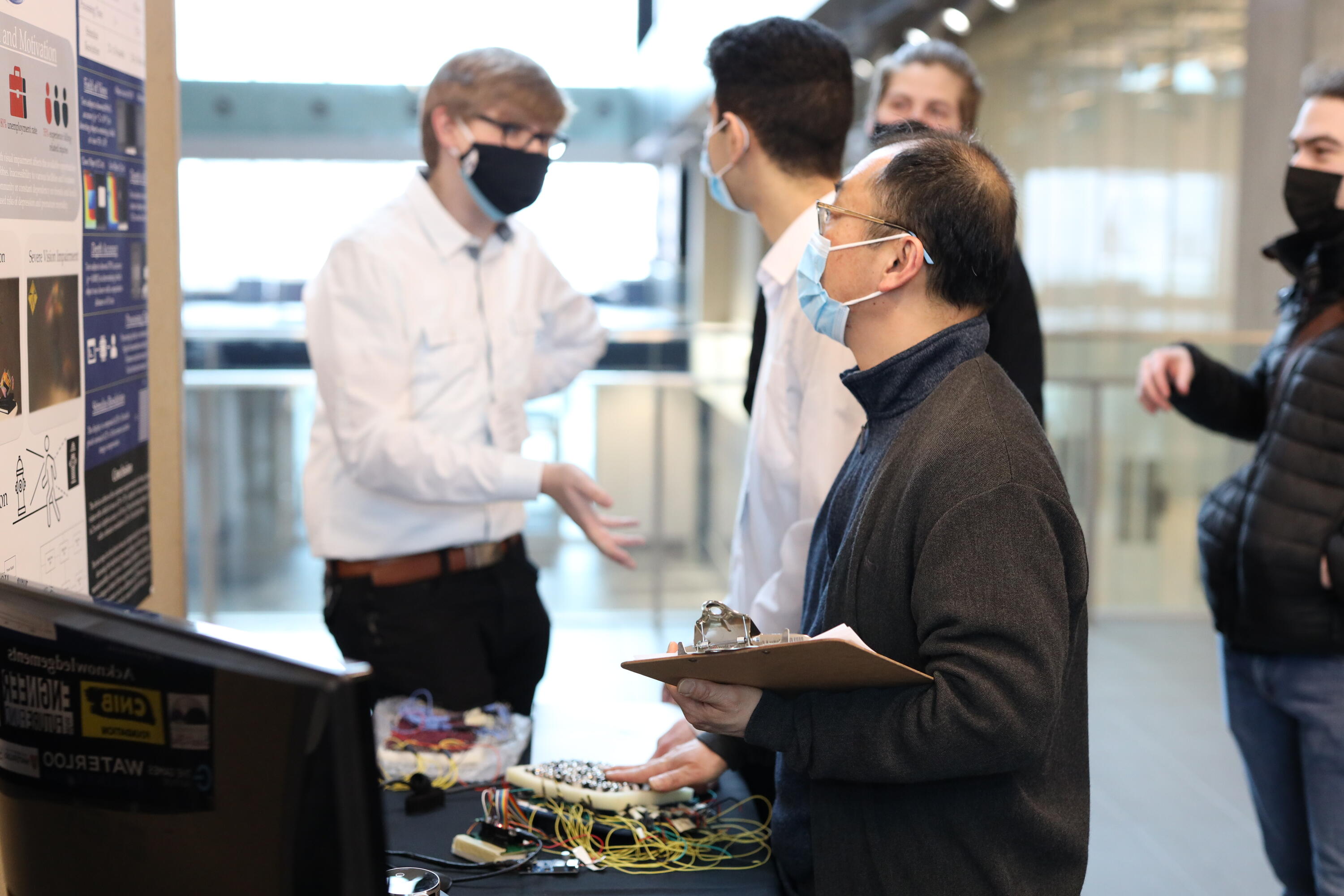
Ten teams of fourth year students had the opportunity to pitch their ideas at the annual Norman Esch Entrepreneurship Awards for Capstone Design held virtually on March 31st. The winning six senior-year engineering teams won $10,000 each in this fierce competition. Two teams from the Nanotechnology Engineering program dazzled the judges with their ambitious projects! Team two-Moonlight Haptics and team three-CortiSolve, were big winners of the competition, netting $10,000 each!
Our winners

Cortisolve, also working with a biomedical application, identified a need within the mental health community for a more accurate technology to support reliable diagnoses of mental illness. The team designed a rapid, high-frequency, and non-invasive cortisol biosensor that accurately measures levels of cortisol.
Future of the projects
Moonlight Haptics team member, Alex Wei, commented that their target market is young adults with severe visual impairment who need to travel outdoors for work or recreational activities. The team initially had a five year plan, however, the judges, impressed by the advanced technology used in the creation of this product, urged the team to speed up production by a few years!
Cortisolve team member, Sarah Odinotski said,
This is exactly what researchers need to better understand cortisol’s connection to mental illness and what clinics may need to make more informed diagnoses.
The future of this product has exciting and broad ranging prospects as the application works through microneedles that can be integrated with existing technology.
These projects were the product of an intensive eight months of hard work, researching, designing, and creating these cutting-edge medical advancements. Congratulations to both teams!
See Successfully pitching inventive projects for complete story.